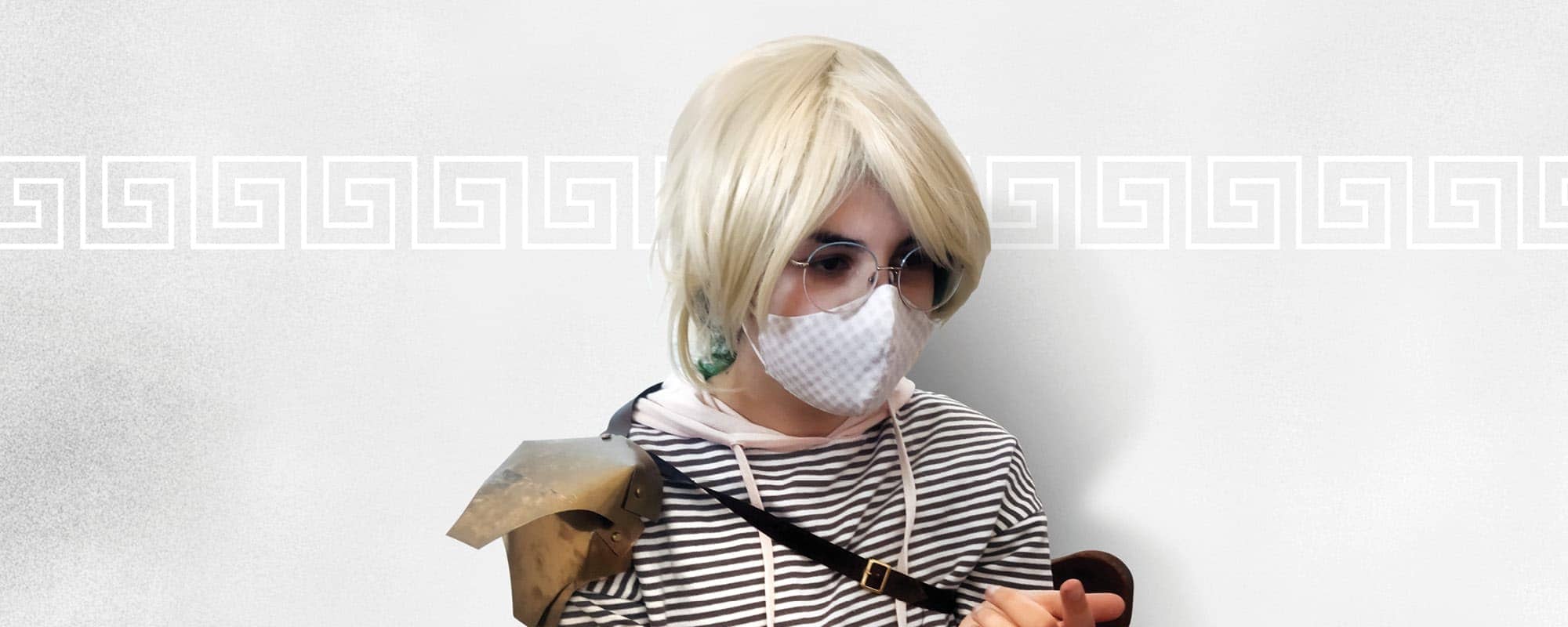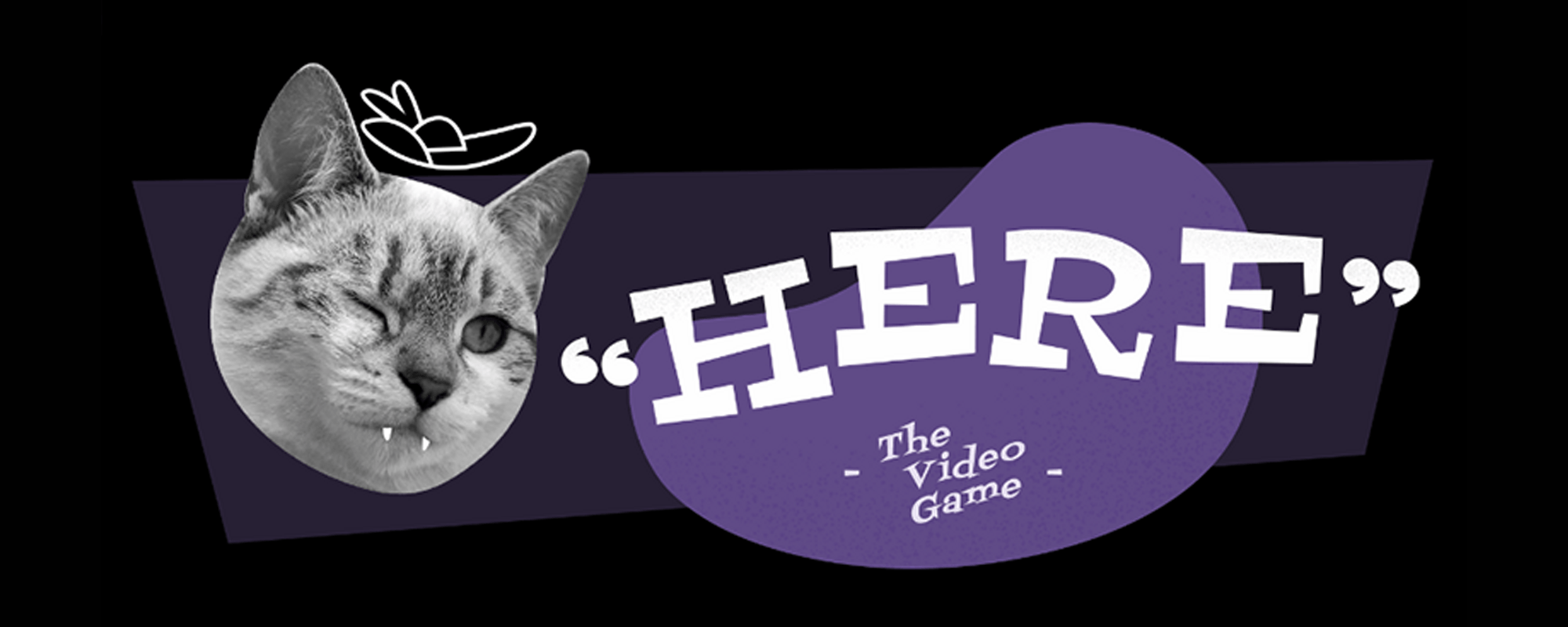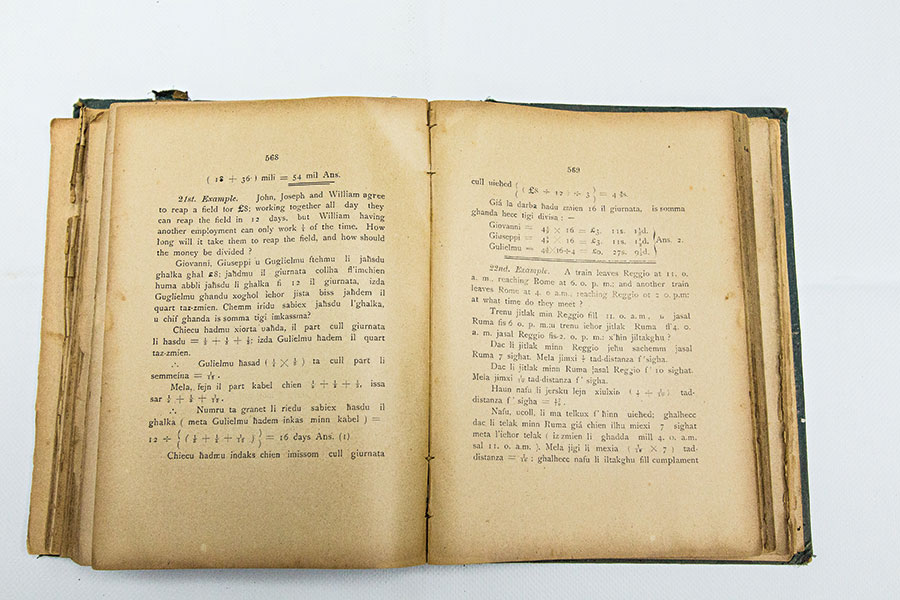Innovative teaching methods can make even the most ancient works feel contemporary
Continue readingWe’re exploring Here!
If you had a rich malleable canvas that could flip rules on their heads and expose truths we take for granted, wouldn’t you use it? Jasper Schellekens writes about the games delving deep into some of our most challenging philosophical questions.
The famous Chinese philosopher Confucius once said, ‘I hear and I forget. I see and I remember. I do and I understand.’ Confucius would have likely been a miserable mystic in modern mainstream education which demands that students sit and listen to teachers. But it’s not all bad. Technological advancements have brought us something Confucius could never have dreamed of: digital worlds.
 A digital world offers interaction within the boundaries of a created environment. It allows you to do things, even if the ‘thing’ amounts to little more than pressing a key. Research at the Institute of Digital Games (IDG) focuses on developing a deeper understanding of how these concepts can be used to teach through doing by looking at people interact with gameworlds, studying how games can impact them (Issue 24), and designing games that do exactly that.
A digital world offers interaction within the boundaries of a created environment. It allows you to do things, even if the ‘thing’ amounts to little more than pressing a key. Research at the Institute of Digital Games (IDG) focuses on developing a deeper understanding of how these concepts can be used to teach through doing by looking at people interact with gameworlds, studying how games can impact them (Issue 24), and designing games that do exactly that.
Doing it digital
Two millennia later, John Dewey, one of the most prominent American scholars of the 20th century, proposed an educational reform that focused on learning through doing and reflection instead of the ‘factory model’ that was the norm. Dewey’s idea was embraced, and has become a pedagogical tool in many classrooms, now known as experiential learning.
Let’s not pretend that Confucius was thousands of years ahead of his time—after all, apprenticeships have always been an extremely common form of learning. But what if we were to transplant this method of experimentation, trial and error, into a digital world?
It would allow us to do so much! And we’re talking about more than figuring out how to plug in to Assassin’s Creed’s tesseract or getting the hang of swinging through New York City as Spiderman. While these are valuable skills you don’t want to ignore, what we’re really interested in here are virtual laboratories, space simulations, and interactive thought experiments.
Games make an ideal vehicle for experiential learning precisely because they provide a safe and relatively inexpensive digital world for students to learn from.
Think of the value of a flight simulator to train pilots. The IDG applied the same idea to create a virtual chemistry lab for the Envisage Project. They threw in the pedagogical power tools of fun and competition to create what’s known as serious games.
Serious games are at the heart of many of the IDG’s research projects. eCrisis uses games for social inclusion and teaching empathy. iLearn facilitates the learning process for children with dyslexia and Curio is developing a teaching toolkit to foster curiosity. However, the persuasive power of videogames stretches further than we might think.
In a videogame world, players take intentional actions based on the rules set by the creators. These ‘rules’ are also referred to as ‘game mechanisms’. Through these rules, and experiential learning, players can learn to think in a certain, often conventional, way.
Which brings us to HERE.

Prof. Stefano Gualeni is fond of using games to criticise conventions: in Necessary Evil a player takes on the role of an NPC (Non Player Character) monster, in Something Something Soup Something the definition of soup is questioned, while in HERE Gualeni breaks down what ‘here’ means in a digital world.
What’s Here?
 HERE sees the player explore the philosophical concept of ‘indexicality’, the idea that meanings depend on the context in which they occur. A fitting example is the extended index finger, which means different things depending on where it is placed and what movement it makes. Point one way or another to indicate direction, place over the lips to request silence, or shake it from side to side to deny or scold.
HERE sees the player explore the philosophical concept of ‘indexicality’, the idea that meanings depend on the context in which they occur. A fitting example is the extended index finger, which means different things depending on where it is placed and what movement it makes. Point one way or another to indicate direction, place over the lips to request silence, or shake it from side to side to deny or scold.
The game explores the word ‘here’ in the digital world. It sheds light on how much we take for granted, and how a lot of concepts are not as straightforward as we think.
HERE you play as ‘Wessel the Adventurer’, a cat of acute perception that is sent on a quest by a wizard to find magic symbols and open an enchanted cave. Playing on the tropes of role-playing games, the expectations of the adventurer are thus framed in a conventional manner, but not everything is as it seems.
By subverting players’ expectations of role-playing games, they will have the opportunity to discover what they have been (perhaps unwittingly) taught. They will be confronted with a puzzle involving the many versions of ‘here’ that can co-exist in a digital world. Among their prizes is Gualeni himself performing a philosophical rap.
Explorable Explanations
Experiential learning isn’t the only way to learn, but video games, with their interactivity and ability to manipulate the gameworld’s rules with ease, offer a ripe environment for it. The digital realm adds a very malleable layer of possibility for learning through doing and interacting with philosophical concepts. HERE is not alone in this approach.
Words often fall short of the concepts they are trying to convey. How do you explain why people trust each other when there are so many opportunities to betray that trust? Telling people they have cognitive biases is not as effective as showing them acting on those biases.
Explorable Explanations is a collection of games curated by award-winning game developer Nicky Case that dig into these concepts through play. The Evolution of Trust is one of them, breaking down the complex psychological and social phenomena contributing to the seemingly simple concept of trust in society. Adventures in Cognitive Biases is able to show us how we are biased even when we don’t think we are. HERE delves into our understanding of language and the world around us, showing us (instead of telling us) that learning doesn’t have to be boring. Now go learn something and play HERE.
To try the game yourself visit www.here.gua-le-ni.com
#GetLearnD
Students tutoring students
According to MATSEC, two in every three 18-year-old students don’t make it from sixth form to university. Gail Sant speaks to the team behind LearnD to find out more about their take on student-centred education.
You love films, videos, and photos. You relax while watching Netflix, and learn new skills on platforms like Skillshare and YouTube. Me? I adore the written word. Books, magazines, blogs are all I need to live a happy life. People are unique. And we all learn things in a unique way.
Different people require different teaching methods to learn. But most classroom set-ups involve one teacher, one lesson, and thirty-odd students. The lesson is interpreted in thirty different ways; a few absorb more than others, leaving some in need of extra help to ace their maths test. And how do they do that? With private lessons.
In Malta, private lessons are the go-to solution for students struggling with a subject. However, these sessions tend to be a carbon copy of school classes: one tutor, one lesson, multiple students. This problem was the seed that gave rise to the education-focused startup LearnD.
The philosophy
LearnD is a tutoring app invented by Luke Collins, Jake Xuereb, and Dr Jean-Paul Ebejer (Centre for Molecular Medicine and Biobanking, University of Malta). The concept behind it is simple, Ebejer says; ‘it’s a bridge between students who can act as mentors and students who need the help.’
LearnD does away with the one-size-fits-all standard of teaching and offers students tailor-made tutoring. Individuals are treated as such, their problems tackled through dedicated sessions. As a student, you don’t need to sit through a whole syll

abus of private lessons. The idea is to identify your weak points and hone in on them in select sessions. This is both time and money-efficient.
Xuereb believes ‘private lessons can make students lazy.’ They don’t need to evaluate their problems, or focus on where their issues lie. Not when they know they’ll just cover all the topics at various points during their weekly appointment with their second teacher on Tuesday night. LearnD focuses on dividing attention unequally. If you get an easy A in physical chemistry but struggle to pass organic chemistry, it only makes sense to give the latter some extra TLC. To get to this point, students need to take a step back from their desks and separate their strengths from their weaknesses.
This is also a big plus for tutors who don’t want to (or can’t) commit to teaching a whole syllabus. They can simply prepare a lesson for the requested topic and leave it at that, earning some extra money to accompany their stipend while gaining teaching experience.
But LearnD isn’t just about academia. Some lecturers lose touch with ‘the student life’, distancing their relationship with students. Conversely, student-tutors know the struggles a peer would be going through and can provide support. ‘No one would have a better understanding of what a sixth former needs to do to get into medicine than a medicine student,’ says Xuereb. ‘Through LearnD you can find people who have been through the exact same thing and who can offer their best advice on anything from time management to de-stressing, and everything else.’
Making it happen
The original concept was more related to finding a way for academically inclined 6th form students to contribute productively to society,’ says Xuereb. When he spoke to Collins, a fellow University of Malta student and Xuereb’s former maths tutor, the idea went from ‘an online local network’ to ‘app’. At the time, there were no local tutoring apps.
Despite both being passionate about the idea, they soon realised that they needed someone with business experience, and that’s where Ebejer came in: the LearnD team was born!
The process that made this idea into reality was not a simple one. Xuereb and Collins spent over six months working on the app, learning about the tech behind app-making and coming up with a business plan.
They got their break when they won the Take-Off Seed Fund Award in 2018 and got the necessary funds to make the app a reality. They quickly got the ball rolling, hiring designers, app developers, and marketing agents. The team grew; the app was built. Then, during the KSU Freshers’ Week in 2018, the app was partially launched, inviting potential tutors to apply. The app is now fully launched and available for students.
Troubles

As with all big projects, the team ran into a few setbacks along the way. One prominent techy mishap didn’t allow them to launch the app on the Apple Store, making it difficult to keep up with the launch date.
Since the app is used by underage students, there were also a lot of safety features which needed inclusion. Tutors upload their police conducts and ID cards. Also, to make sure LearnD’s service is reliable, the team not only analyses tutors’ qualifications, but they also try and test each applicant out themselves. And for accounts which belong to students under the age of 16, parents need to authorise any communication which goes on through the app.
The team persisted through the struggles they encountered and continue to work hard to solve any problems which crop up. Despite difficulties with time management, Collins and Xuereb, both undergraduate students, expressed how this app allowed them to dive into the working world. They gained entrepreneurial maturity, understanding the importance of a reliable team which shares the same ideas and work ethic, as well as dividing funds for the project’s overall benefit.
A LearnD future
The LearnD story doesn’t stop here. ‘We want to renovate the education space,’ says Ebejer, adding that they wish to take the next step and make it internationally available. Malta’s size makes it the perfect test bed, but they think that the app shouldn’t be limited to its home.
According to MATSEC, in 2017 only 27% of 18-year-old students acquired the necessary qualifications to get into university. Collins expressed that students ‘shouldn’t get lost’ because of a bad exam result or because of a mismatched student-teacher scenario. Students deserve to be treated as individuals, and LearnD can offer them that.



